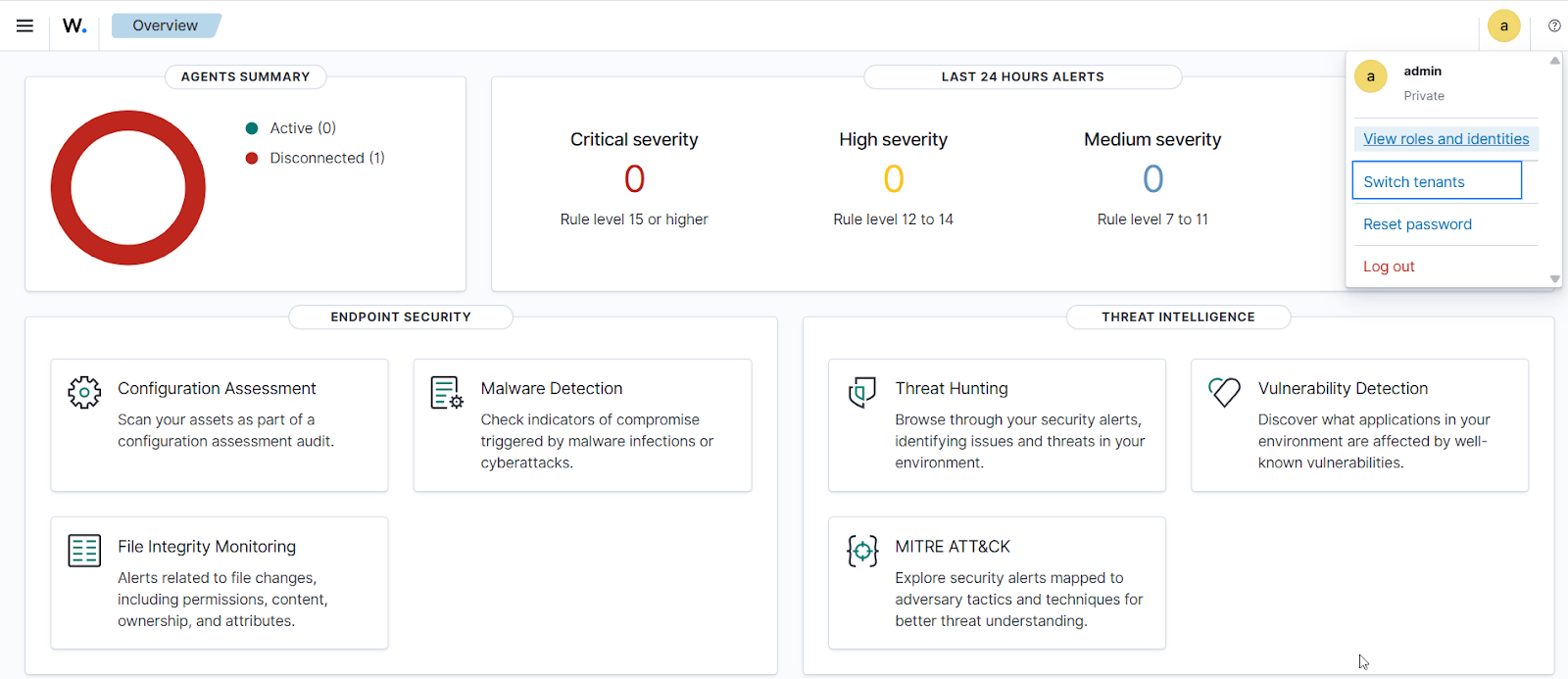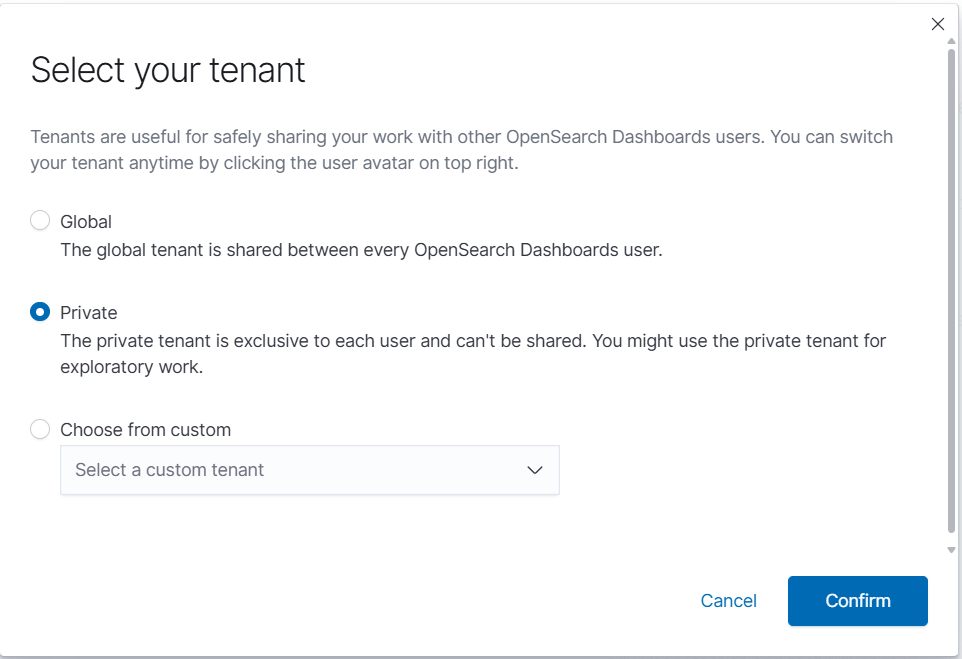Enabling multi-tenancy
Tenants in the Wazuh dashboard are containments for saving index patterns, visualizations, dashboards, and other objects. Tenants are useful for safely sharing your work with other users. You can control which roles have access to a tenant and whether those roles have read or write access. By default, all the Wazuh dashboard users have access to two independent tenants:
Global: This tenant is shared between every Wazuh dashboard user.
Private: This tenant is exclusive to each user and can't be shared. Users in the private tenant can't access routes or index patterns made by users in the global tenant.
Custom: Administrators can create custom tenants and assign them to specific roles. Once created, these tenants can then provide spaces for specific groups of users.
Configuration
Perform the following instructions below on the Wazuh dashboard to enable multi-tenancy.
Edit the
/etc/wazuh-dashboard/opensearch_dashboards.ymlconfiguration file and make the following changes:Set the
opensearch_security.multitenancy.enabledsetting totrue.Add the following line:
opensearch_security.multitenancy.tenants.preferred: ["Global", "Private"]
This setting lets you change ordering in the Tenants tab of the Wazuh dashboard. By default, the list starts with global and private (if enabled) and then proceeds alphabetically.


You can add tenants here to move them to the top of the list.
opensearch.requestHeadersAllowlist: ["securitytenant","Authorization"] opensearch_security.multitenancy.enabled: true opensearch_security.multitenancy.tenants.preferred: ["Global", "Private"] opensearch_security.readonly_mode.roles: ["kibana_read_only"]
Additionally, you can edit the
uiSettings.overrides.defaultRouteto set a default tenant, for example, global, each time a user logs in.uiSettings.overrides.defaultRoute: /app/wz-home?security_tenant=global
Restart the Wazuh dashboard so changes can take effect.
# systemctl restart wazuh-dashboard
# service wazuh-dashboard restart